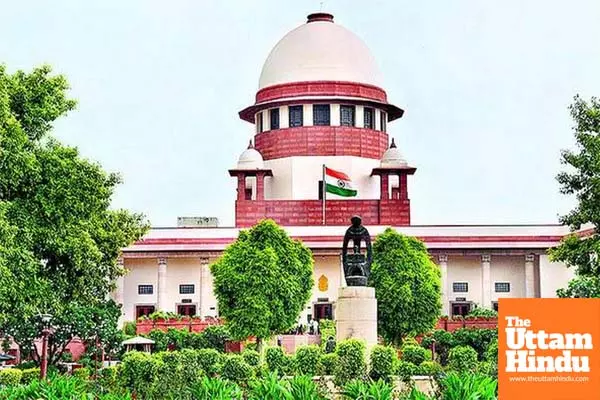
Children of Dalit Father and Non-Dalit Mother Eligible for SC Reservation," Rules Supreme Court

New Delhi (The Uttam Hindu): The Supreme Court on Thursday delivered a major verdict using its privilege under Article 142 of the Constitution. The country's highest court annulled the marriage of a Dalit man and a non-Dalit woman. The court also ordered that the husband obtain Scheduled Caste (SC) certificates for his minor children who have been living with their mother for the last six years.
A bench of Justices Suryakant and Ujjal Bhuiyan granted divorce to Juhi Poria (formerly Jawalkar) and Pradeep Poria, saying that a non-Dalit woman cannot join the Scheduled Caste through marriage. However, her children born to a Dalit man will receive Scheduled Caste status. The court reiterated a 2018 verdict, saying, "Caste is determined by birth and cannot be changed by marriage. Only due to the fact that the woman's husband is from the Scheduled Caste community, she cannot be given a Scheduled Caste certificate."
The case gives the right to obtain SC caste certificate for their 11-year-old son and six-year-old daughter. Both of them have been living with their non-Dalit mother at their maternal grandparents' house in Raipur for the last 6 years. The court said that even after the divorce of the parents, the children will have the right to get the benefits of government education and employment under the Scheduled Caste. The Supreme Court ordered the husband to obtain Scheduled Caste certificate for the children within six months. Along with this, the husband was directed to bear all the expenses for the education of the children (till post-graduation), such as admission fees, tuition fees and residential expenses. The husband has made a lump sum payment of Rs 42 lakh as lifetime maintenance of the wife and children. Apart from this, the court was also ordered to hand over a land plot of the husband in Raipur to the wife. Earlier, the bench had directed the husband to buy a two-wheeler for personal use for the wife by August 2024.
Instruction to improve the relationship between children and father
The Supreme Court directed the woman to cooperate in improving the relationship between the children and their father. Under this, the children should be ensured to meet their father from time to time and be allowed to spend time with him during holidays. The bench also dismissed the cross-FIRs and other cases filed by the couple against each other. This decision is another example of the Supreme Court's extensive intervention under Article 142. It not only resolved the marital dispute but also protected the rights of the children and their future.

